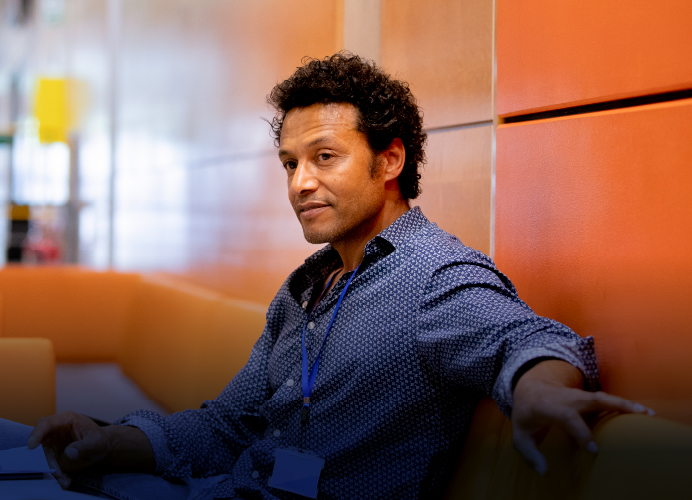Australian International Education Conference

Insights.
The Australian International Education Conference (AIEC) is a key highlight in the annual calendar for the international education sector. Practitioners, teaching staff, researchers, policy makers, vendors and other stakeholders come together to learn about major industry trends and to network with Australian and international peers.
This year – our fourth year as a major sponsor – lockdown restrictions meant that the 70+ sessions were delivered by 230+ speakers to 1,200+ delegates virtually. To the credit of the hosting organisation (IDP), the event was delivered seamlessly. Here’s our recap of some of the highlights from this year’s program.
The skills shortage: how international education can lead Australia’s recovery
Bernard Salt AM Executive Director, The Demographics Group
This year’s opening plenary was by Bernard Salt – futurist, trendspotter, columnist, advisor, and Australia’s best-known demographer. His session was a great catalyst to stimulate ‘future thinking’, especially as it relates to the role of international students. Bernard’s thoughts were perhaps best captured by Jessamy Gee from Think in Colour:
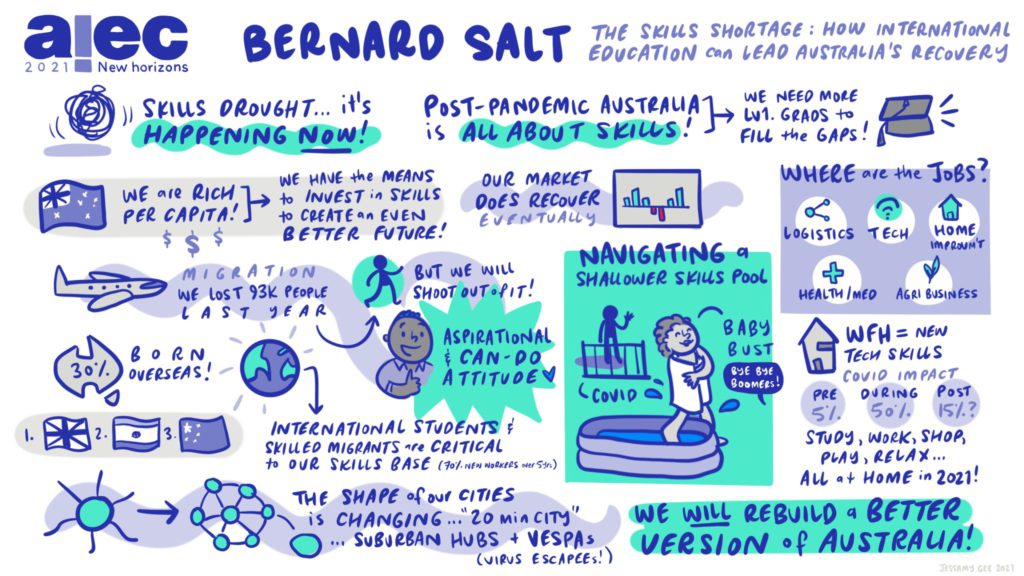
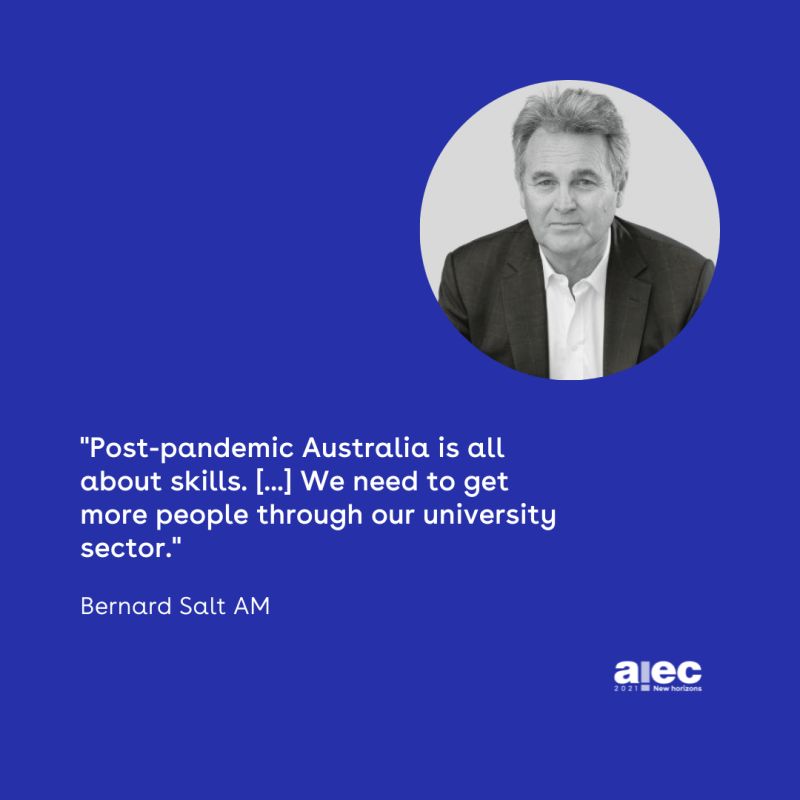
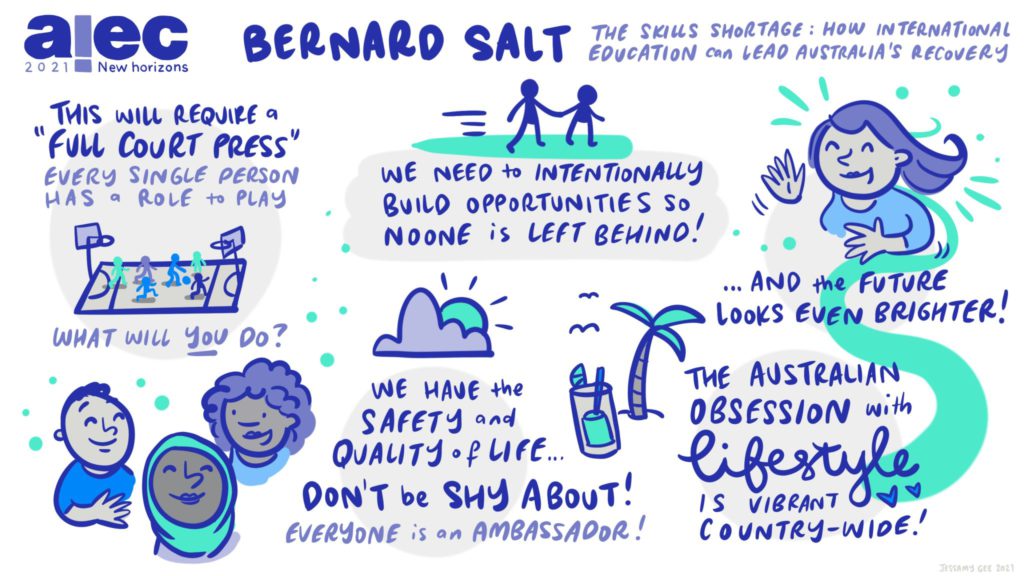
How can you support students differently?
Belle LimFormer president, Council of International Students (CISA)
Nathan PuglieseDepartment of Education, International, Queensland Government (EQI)
Dr Jamie Phillips Medical Director and Head of Member Support, Sonder
Robert Chasse Manager, Education Partnerships and Integrations, Sonder
Now that the world has been disrupted, this session discussed what the new horizon of student support might look like.
Primary discussion points included:
- The need to acknowledge and consider COVID-19-amplified pressures:
- Financial pressure: students are feeling the pressure of reduced family incomes in their home countries and guilt over spending a large amount of family savings on their education;
- Social exclusion: locked down in small apartments, without the in-person support of family and friends; and
- Discrimination and racism: international students are bearing the brunt of unwarranted discrimination and racism, which is leading to social withdrawal and avoidance of interactions with strangers.
- Research results from the UK that have shown that the group at most risk of mental health issues as a result of COVID-19 are:
- Young females from ethinic minorities who are living alone.
- The need to try new forms of support, such as some of EQI’s initiatives around providing human-led, proactive and early intervention support for both: (a) onshore students in Australia; and (b) international students returning to Australia (both under 18’s and 18+, including during quarantine stage).
- The importance of involving students in co-design. As Belle said,
- “Having students involved in the process allows us to have deeper insights. And the initiatives that you create will actually serve the objectives and purpose of helping students. The co-design process also makes students feel invested in the project and really ultimately save resources for us”; and
- “…it is not enough to see students as customers. It is time to see students as partners and that will ultimately, you know, serve the benefit of everyone.”
Full video and transcript: How can you support students differently?
The COVID-19 road to recovery for international education
Jonathan Chew Head of Strategic Insights and Analytics, Navitas
Jonathan’s session presented a less optimistic view of the international education sector’s recovery in Australia. He proposed that “Australia and New Zealand will suffer from long-COVID”, due to five primary factors:
- Reduction in capacity
- Closure of colleges that are no longer able to sustain zero revenues; and
- Loss of capacity as institutions scale back or consolidate their program offerings.
- Loss of capability
- Loss of academic staff with cultural competence and pedagogical expertise for working with foreign students and non-native English speakers; and
- Loss of professional staff, especially in international offices, with relationships and offshore know-how for student recruitment.
- Permanent lost advantages
- Loss of key staff who gain employment in institutions from other countries;
- Weakening/loss of relationships with agents in market; and
- Closure of Australia-focussed desks at large agencies.
- Path dependency
- Future cohorts of students will be biased away from Australia/NZ as a result of: siblings who have started studying in countries other than Australia; family property holdings that might not be in countries other than Australia; and relatives who now live in countries other than Australia.
- Diminished rankings
- Research capabilities may be diminished as the funding and workforce for research becomes harder to sustain, given the decline in revenues from international students.
The new student: using technology and human connection to engage a changed audience
Danielle Di-Masi The Interactions Lab
Danielle’s mini-plenary was highly engaging. Her takeaways included:
- The expectation of experience has changed
- Students are increasingly vocal and articulate about the outcomes they expect; and
- Students go mining for answers on social media;
- It’s important to offer validation to students
- “I see you, I get you, this makes sense”;
- Help students find a new path
- “Don’t just sit at the hole with them. Show them a pathway forward”; and
- Honour their choices.
- Students don’t think it’s fair
- “This isn’t what we paid for. Give us back the dreams and opportunities that previous generations had”; and
- Teens don’t have a lot of freedoms. Their dreams and their story are two things that they do have a choice over and feel passionate about – so these things are very important to them.
- Students don’t care about COVID-19 excuses
- Think of it like this… When you’re hungry and waiting at a restaurant, do you care if the restaurant’s excuse for their delay is that they’ve overbooked? No.
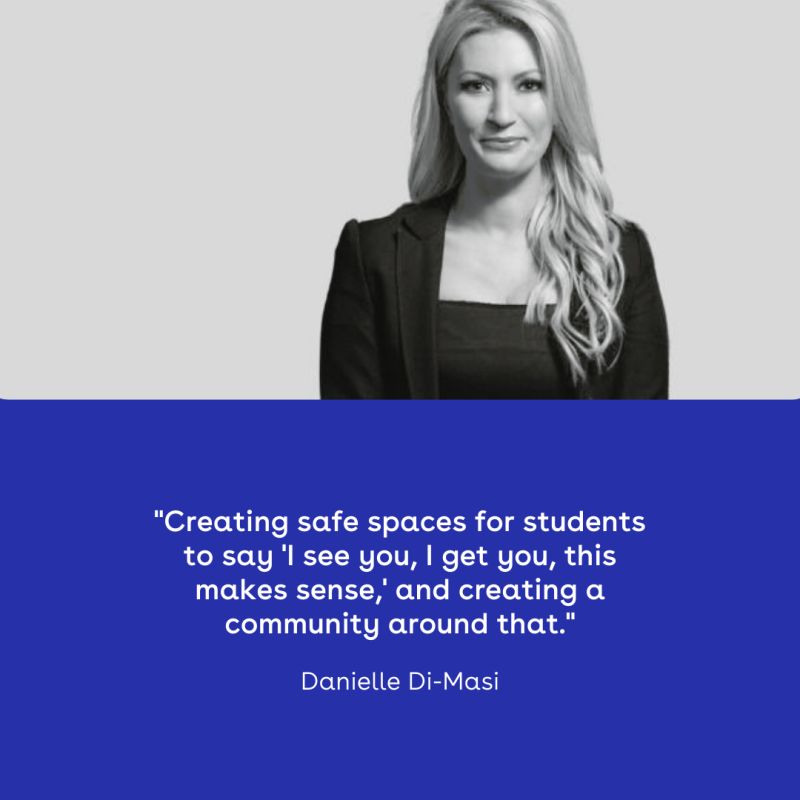
New horizons: embracing a student-led approach to diversification
Andrew Wharton Client Director, IDP Connect
Andrew’s session talked about the federal government’s Australian Strategy for International Education 2021–2030 and it’s likelihood to drive an increased focus on diversification across delivery, source markets and courses, in order to support sustainable growth and a distinctive student experience.
Andrew emphasised that:
- Post-study employment is a major driver for students – we need to offer this to international students if we want the industry to bounce back;
- Lower course fees are expected if students are studying offshore and not getting the full immersion experience; and
- Every stakeholder needs to make international students feel welcome.
His four summary points were:
- Delivery preference
- Overseas campus-based study remains the preferred method of studying for an international qualification, with Canada currently the country of choice;
- Key drivers
- Career development and quality of education are the key drivers for studying for an international qualification, regardless of delivery model;
- Home country study levers
- Reduced tuition fees is the number one condition for consideration of home country study. Post-study work rights and a pathway to migration are also strong levers; and
- Skills shortage study levers
- The introduction of migration incentives for skills shortage related fields of study offers a great opportunity to diversify across courses and enhance the attractiveness of Australia.
Building safe corridors for international mobility – an example of state and territory government collaboration
Taliessin Reaburn Director, International Education and Tourism Investment, South Australian Department for Trade and Investment
Shannon Willoughby Executive Director, Trade and Investment Queensland
Phil Payne Chief Executive Officer, StudyPerth
Harpreet Gill Manager, Global Education, Study Tasmania
Toshi Kawaguchi Director, Study NSW
Larnie Batten Director, Study NT
This session gave voice to six Australian states and territories. The panellists discussed common challenges (e.g. ongoing differences in lockdown rules and vaccine rates across the country, as well as the different domestic demands on local healthcare systems), and how they’ve tried to work together to overcome some of the recent geographical hurdles.
Phil Payne from StudyPerth perhaps best summarised the session as follows:
“As things stand, without further coordination and intervention from the federal government, and without more cooperation from the states and territories, things are inevitably going to be a bit of a mess.”
“Our federal system is not understood very well at all by international students [and] their agents. And the diverse range of responses to the challenge are very confusing to our market. I have to explain it to my dad in the UK almost daily, why someone in New South Wales would be more likely to be able to fly to Paris before they can fly to Perth.”
“So, I think there is a lot of work to be done to coordinate and harmonise, because we will all suffer if we present a very fragmented approach to what is actually a real opportunity presenting itself now. But I’m confident that the collegiate approach taken so far by states and territories will continue, and will prevail. I think things will start to move quite quickly and in a very positive direction very shortly.”
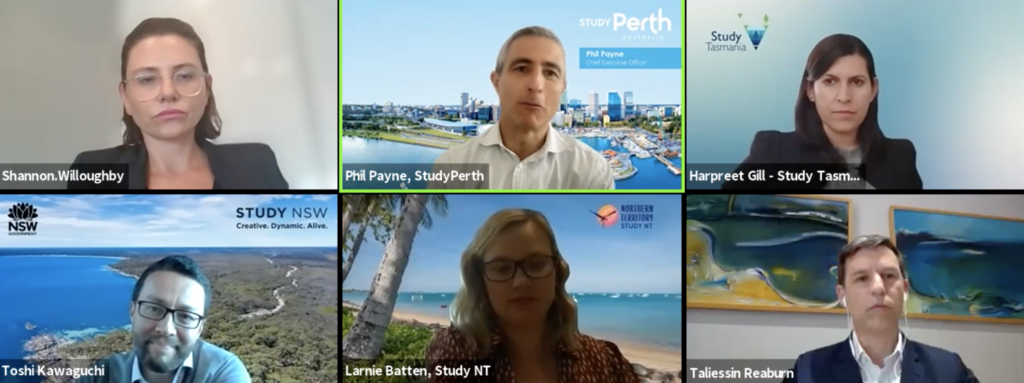
New perspectives: how market dynamics have shifted the needs and expectations of multiple target audiences
Rob Lawrence Director, Prospect Research and Marketing
Rob’s session summarised a collection of highly-targeted research projects that he had conducted in the previous 12 months to determine how the next wave of international education would evolve. The projects examined how attitudes and perceptions have changed towards higher education and VET, relevance to the future workforce and workplace needs, and the responsiveness of industry towards new and alternative means of delivery including micro-credentials.
Commenting on the changes he’s seen as a result of the sector’s COVID-19 upheaval, Rob said, “I’ve seen better creativity [in the university sector] than in the last 25 years.”
Rob highlighted the following themes from his 42 interviews with expert commentators, opinion leaders and industry advocates:
- Greater use of short-term contracts;
- Employees need to possess the core qualities of flexibility, resilience, creativity, and application;
- Employees must remain constantly relevant;
- Specialisations are becoming narrower and narrower; and
- Employees need an ability to rapidly transition to different environments and settings.
As a result, he suggested that students need to:
- Create a unique individual portfolio to enable individual differentiation;
- Be relevant to current needs, through ongoing education and knowledge inputs;
- Offer an outcome: proof of ROI;
- Ensure and enable specialisation;
- Adopt creative, innovative, and global perspectives;
- Embrace adaptability, versatility and flexibility; and
- Continually build networks.
Interestingly, “almost 90 per cent of international students in Australia come from families running their own business”.
Minister’s address
The Hon. Alan Tudge MP Minister for Education and Youth
Minister Tudge delivered his keynote address on international education and his expectations for the return of international students to Australia in the very near future.
His sentiments were put into pictures by Alice Edy from Think in Colour:
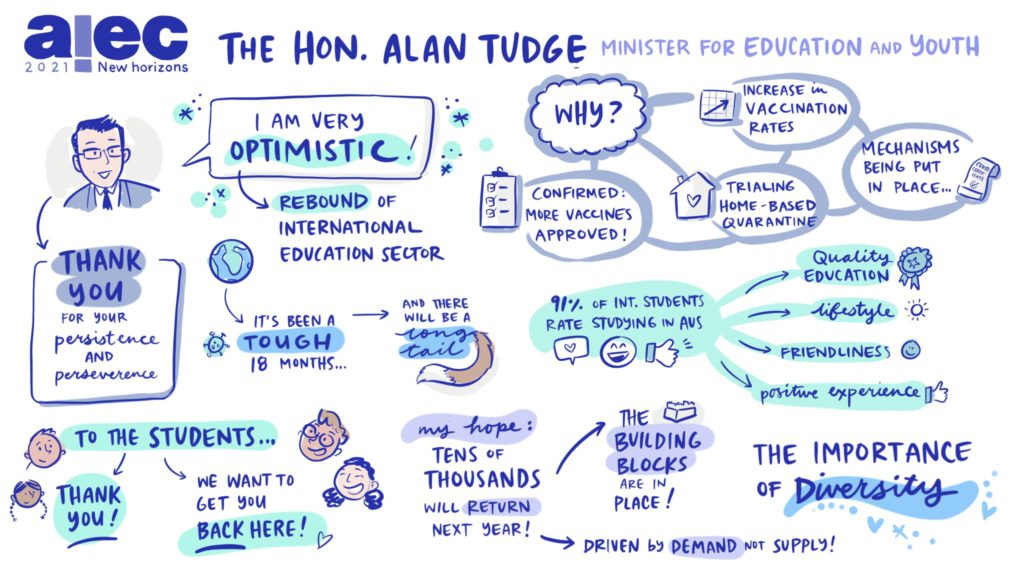
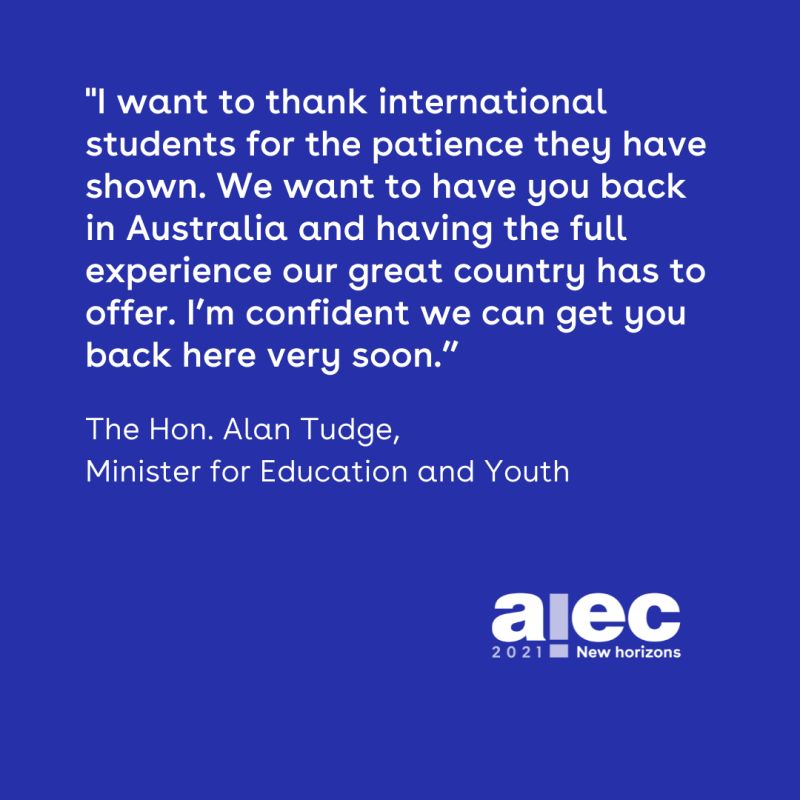
Want to learn more?
For more information about how we are rethinking the international student experience, please learn more here and/or contact us here.
About Sonder
Sonder is an Active Care technology company that helps organisations improve the wellbeing of their people so they perform at their best. Our mobile app provides immediate, 24/7 support from a team of safety, medical, and mental health professionals - plus onsite help for time-sensitive scenarios. Accredited by the Australian Council on Healthcare Standards (ACHS), our platform gives leaders the insights they need to act on tomorrow's wellbeing challenges today.
Related posts
There's so much more to share
Sonder is reimagining health, safety and wellbeing support. Sonder proves human centric care leads to earlier intervention. Sonder impacts one person at a time to drive meaningful change across an organisation. Sonder understands people and how to support them.



